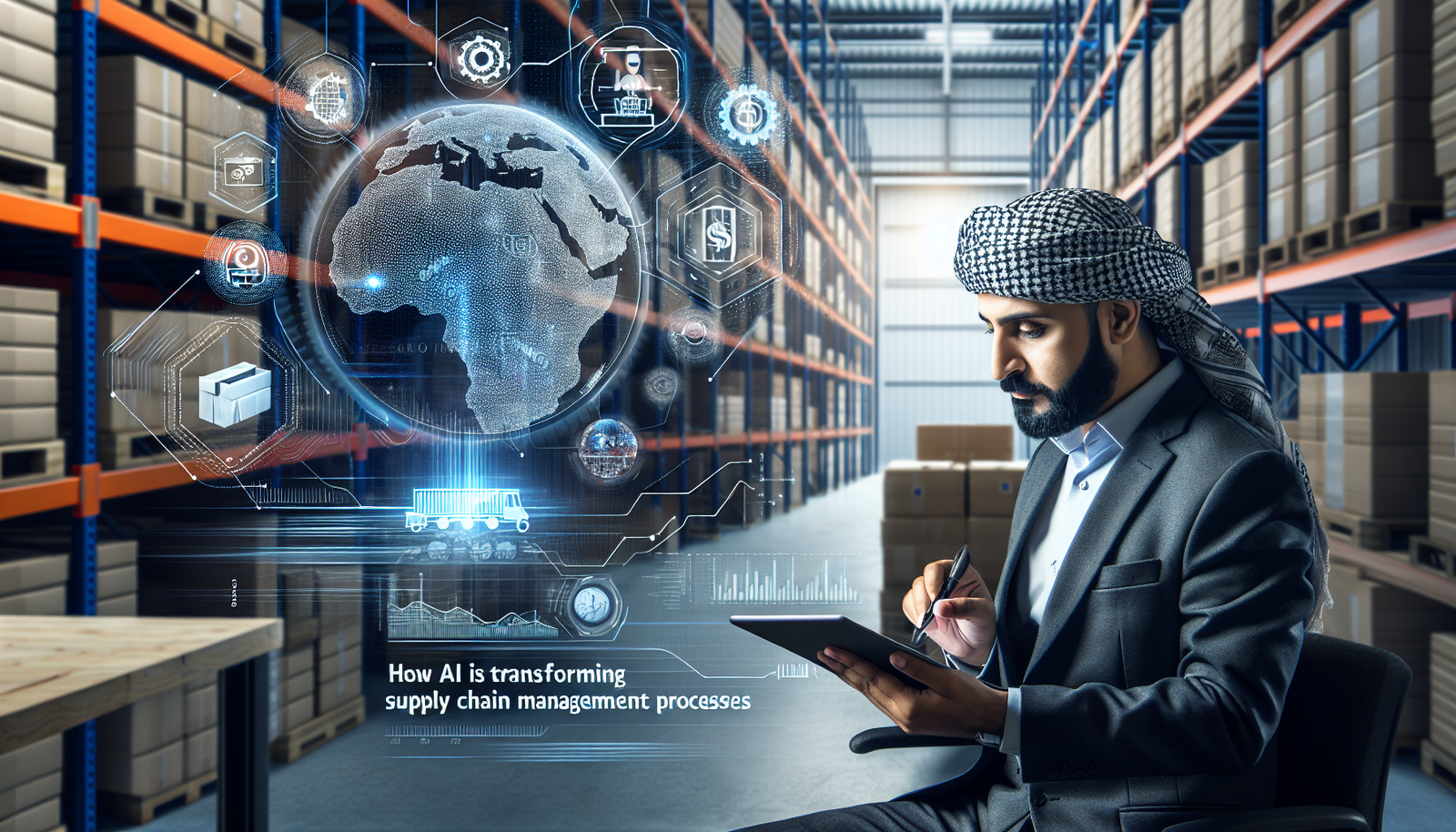How AI is Transforming Supply Chain Management Processes
In today’s fast-paced business environment, supply chain management is undergoing a revolutionary transformation, largely driven by the advancements in artificial intelligence (AI). Companies are increasingly harnessing AI technologies for critical processes such as route optimization and demand forecasting, enabling them to enhance efficiency and reduce costs. By leveraging AI, organizations can analyze vast amounts of data in real time, leading to smarter decision-making and improved responsiveness to market fluctuations. In this discussion, we will explore the profound impact of AI on supply chain management and how it is reshaping the way businesses operate.
The Power of Predictive Analytics
One of the most significant ways AI is transforming supply chain management is through predictive analytics. AI can accurately predict future demand by analyzing historical data, market trends, and external factors, allowing companies to optimize inventory levels and streamline supply chain processes. This capability reduces the risk of stockouts or overstocking, which are common challenges in traditional supply chain management.
Route Optimization
Route optimization is another critical area where AI is making a substantial impact. By analyzing historical data, traffic patterns, and external factors such as weather and delivery constraints, AI can optimize route planning and scheduling. This results in reduced fuel consumption, improved delivery times, and lower costs. For instance, AI can dynamically adjust routes in real-time based on traffic conditions and weather forecasts, ensuring that goods are delivered efficiently and on time.
Demand Forecasting
Demand forecasting is a key challenge in supply chain management, and AI has proven to be a game-changer in this area. AI algorithms can analyze vast amounts of data, including historical sales data, market trends, and external factors, to provide more accurate demand forecasts. This enables businesses to optimize inventory levels, reduce the risk of overstock or stockouts, and accurately predict transportation needs. Generative AI models can continuously generate optimized replenishment plans based on real-time demand signals, supplier lead times, and inventory levels, further enhancing the accuracy of demand forecasting.
Information Sharing and Visibility
AI enhances information sharing and visibility across the supply chain by collecting and digitizing data from disparate sources such as bills of lading, contracts, and emails. This digitization speeds up the flow of data, reduces the risk of human error, and improves decision-making. For example, AI tools can map out different supply chain tiers by gathering records like product orders, customs declarations, and freight bookings, providing clear visibility into the movement of goods.
Warehouse Automation
In the warehouse, AI is revolutionizing tasks such as picking, packing, and sorting. Smart cameras and sensors can identify and locate items on shelves, guiding employees or robots to pick orders more efficiently. AI algorithms can optimize picker routing, reducing travel time and improving order fulfillment accuracy. Additionally, AI can lay out warehouses more efficiently by evaluating the quantity of materials coming in and improving service levels.
Streamlined Freight Bill Audit and Payment
AI can also streamline freight bill audit and payment processes by automatically extracting relevant information from freight bills, such as shipping details and rates. This reduces manual data entry and minimizes errors. AI-powered analytics can validate the data against predefined rules to identify discrepancies and ensure accuracy, providing real-time visibility into freight and payment processes.
Enhanced Supply Chain Sustainability
AI is not only improving efficiency but also contributing to the sustainability of supply chains. By using predictive analytics, companies can optimize truckloads, predict the most efficient delivery routes, and reduce product waste. Generative AI can identify opportunities to reduce carbon emissions, minimize waste, and promote ethical sourcing practices through scenario analysis and optimization algorithms. This includes combining AI with technologies like blockchain to provide clear visibility into products’ origin and carbon footprint.
Overcoming Challenges and Ensuring Human-AI Collaboration
While AI offers numerous benefits, it is not without its challenges. The integration of AI technology requires significant organizational changes, business process updates, digital transformation, and employee skills training. It is crucial to understand that AI should enhance human qualities rather than replace them. Humans bring unique qualities such as ethical judgment, creativity, emotional intelligence, and accountability, which are essential for effective decision-making and innovation. Uniting AI and human employees leads to more effective decision-making and innovation in various industries.
Real-World Benefits and ROI
Early adopters of AI-enabled supply chain management have seen significant benefits. For instance, companies have reduced logistics costs by 15%, improved inventory levels by 35%, and enhanced service levels by 65%. AI has also contributed to a strong return on investment (ROI), with 70% of CEOs agreeing that AI is delivering a strong ROI despite the initial costs of adoption.
Conclusion
The integration of AI in supply chain management is a transformative force that is revolutionizing the way businesses operate. From predictive analytics and route optimization to demand forecasting and warehouse automation, AI is enhancing efficiency, reducing costs, and improving sustainability. As companies continue to leverage AI technologies, they are not only staying competitive but also building resilient and sustainable supply chains. To learn more about how AI can transform your supply chain, visit Neyrotex.com.
In the dynamic marketplace of today, embracing AI in supply chain management is not just an option but a necessity for businesses aiming to stay ahead. By combining the power of AI with human expertise, companies can achieve unparalleled levels of efficiency, resilience, and sustainability. For more on how to integrate AI into your supply chain, visit Neyrotex.com.






